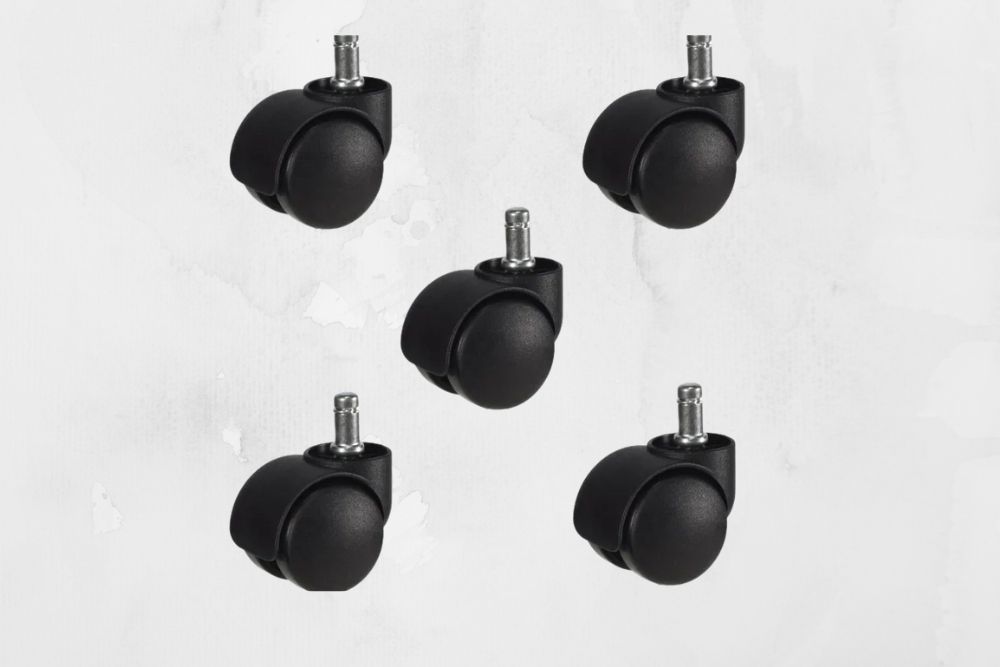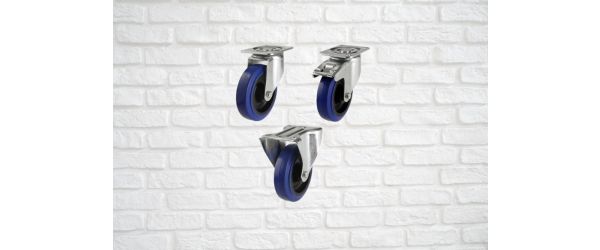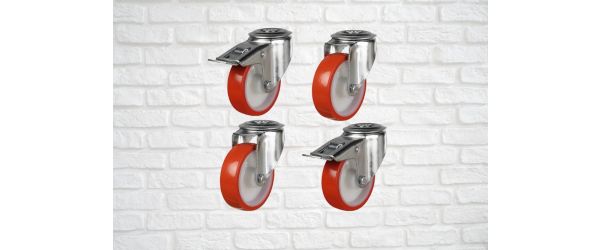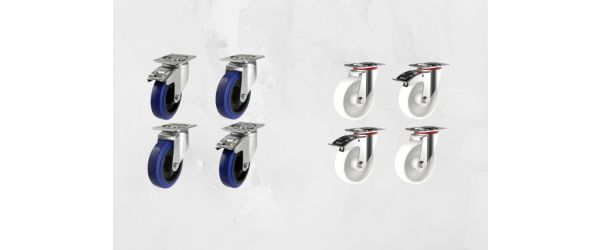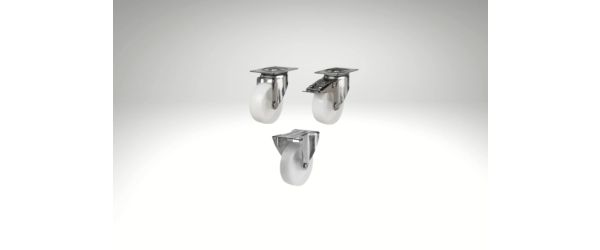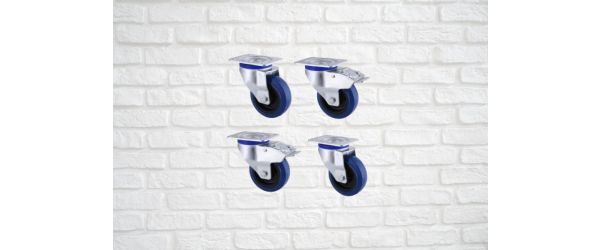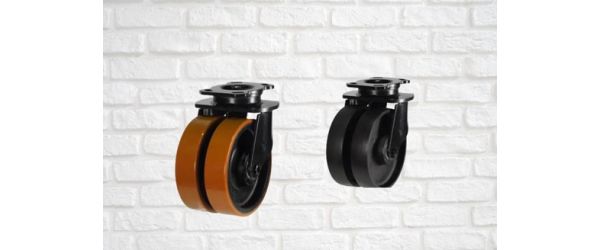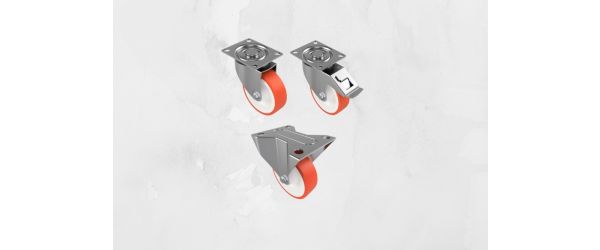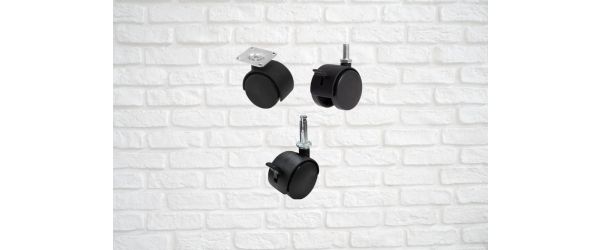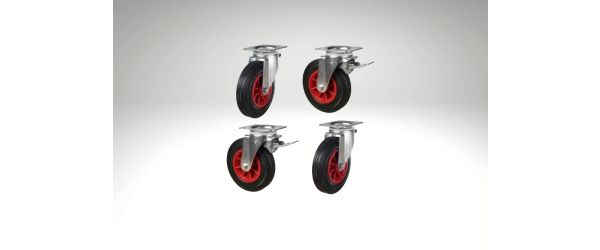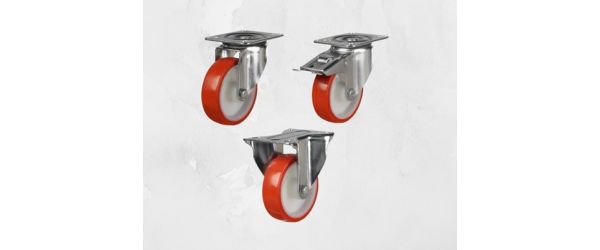When it comes to office seating, mobility is just as important as comfort. One often overlooked factor is the type of office chair castors used—and choosing the wrong kind for your flooring can result in damaged surfaces, limited movement, or frustrating noise. Whether your workspace has plush carpet or polished hard floors, the right castors can make all the difference to your day-to-day comfort and productivity.
In this guide, we explore the differences between castors for carpets and hard floors and how to choose the best option for your office environment.
1. Why the Right Office Chair Castors Matter
Choosing the correct castors for your office chair can help:
- Improve chair mobility and ease of movement
- Reduce wear and tear on flooring
- Prevent noise or scraping
- Protect users from strain caused by resistance or sticking
Whether you’re working from a home office or managing a corporate workspace, upgrading to the right office chair castors is a small change that can make a big impact.
2. Castors for Carpeted Office Floors
Standard Nylon Castors:
Most office chairs come fitted with hard nylon castors by default. These are well-suited to low-pile carpets, offering a good balance of durability and mobility.
Carpet Considerations:
- On low-pile carpet, nylon castors perform well, allowing the chair to move smoothly without sinking in.
- On medium or high-pile carpet, however, standard castors can become stuck or difficult to manoeuvre. In these cases, larger diameter castors or specialised carpet castors are a better choice.
Tip: For thick carpet, choose castors with wider wheels or twin-wheel designs to reduce resistance and improve weight distribution.
3. Castors for Hard Floors
Soft Rubber or Polyurethane Castors:
Hard floors like wood, laminate, vinyl, or tile require softer castor materials to avoid damage.
Rubber or polyurethane wheels provide grip, reduce noise, and protect surfaces from scuffs and scratches.
Benefits of Soft Castors on Hard Flooring:
- Floor protection – Prevent dents, marks, or chips
- Reduced noise – Soft castors roll quietly across hard surfaces
- Improved control – No unwanted sliding or excessive rolling
Tip: If your office has expensive or delicate flooring, always use soft castors or a protective chair mat.
4. Universal or Dual-Purpose Castors
Some office chair castors are designed to work across multiple surfaces, including carpet and hard flooring. These dual-purpose options can be ideal for hybrid offices or hot-desking environments.
Are They Worth It?
While they won’t match the performance of flooring-specific castors, universal castors offer a good compromise, especially if furniture is frequently moved or rearranged.
5. Should You Use a Chair Mat?
If switching castors isn't an option, consider using a chair mat to create a suitable rolling surface. Chair mats are particularly useful for:
- Protecting hardwood floors
- Preventing castors from digging into carpet
- Creating a defined workspace in open-plan settings
However, the most effective long-term solution is always to match the castors to the floor type.
6. How to Replace Your Office Chair Castors
Upgrading your office chair castors is usually quick and easy:
- Turn the chair upside down
- Pull or gently pry out the old castors
- Push the new castors firmly into the socket
- Ensure all castors are securely in place before use
Make sure the replacement castors are compatible with your chair base and have the correct stem size
Conclusion
The best office chair castors depend on your floor type. For carpets, hard nylon or larger twin-wheel castors work best—especially on thicker piles. For hard floors, soft rubber or polyurethane castors are ideal to protect surfaces and reduce noise. By choosing the right castors for your office flooring, you’ll enjoy improved comfort, greater mobility, and a more professional workspace.
Browse our full range of high-quality office chair castors at Castors Online
and find the perfect solution for your workspace today.
